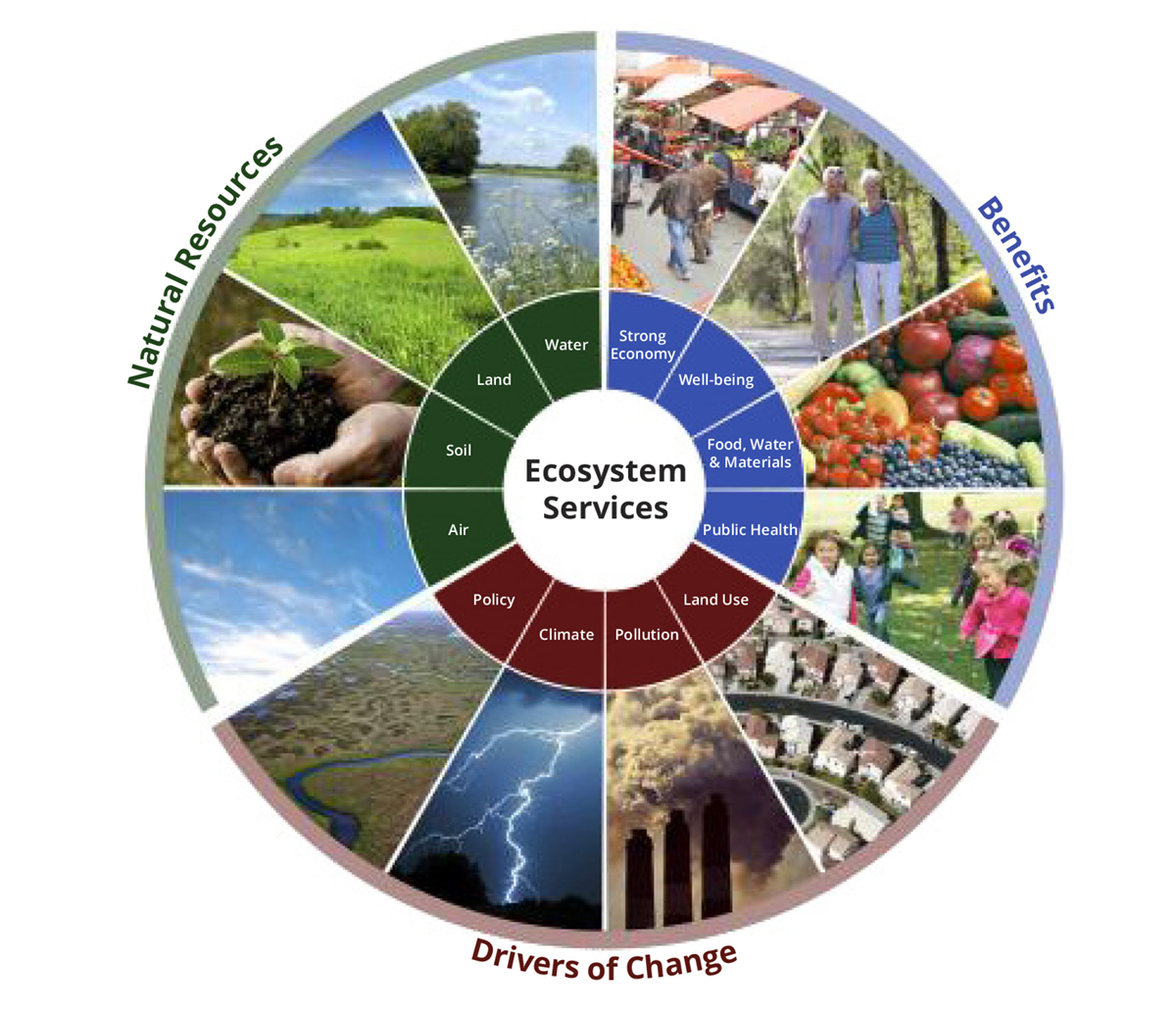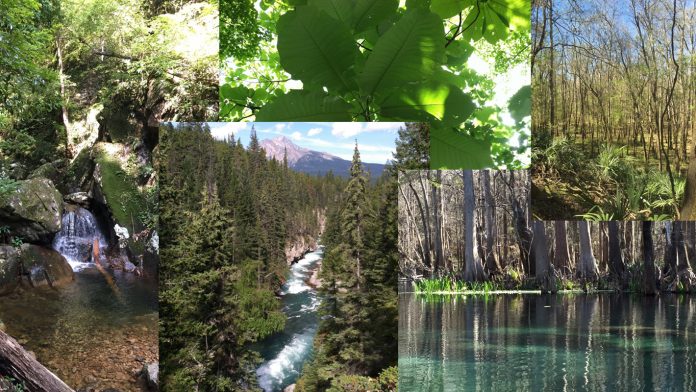Pamela S. Soltis, Director of the University of Florida Biodiversity Institute provides a fascinating analysis of her department’s research on biodiversity – that is, the extraordinary variety of life on Earth
Biodiversity – the extraordinary variety of life on Earth – is fundamental to a healthy, sustainable planet, yet the connections between biodiversity, ecosystem function and services that contribute to human well-being are less well understood. These ‘ecosystem services’ derive from healthy ecosystems and include clean air, clean water, flood resistance, protection from weather extremes, pollinators of crops, sources of foods, fibres and medicines, recreational opportunities and spiritual and cultural experiences, to name a few (Fig. 1).
The current concept of ecosystem services traces to the 2005 United Nations Millennium Ecosystem Assessment. Classification of ecosystem services – by function or other properties – provides a basis for quantifying and valuing these contributions. For example, the U.S. Environmental Protection Agency (EPA) defines ‘final ecosystem goods and services’ as components of nature, directly enjoyed, consumed, or used to yield human well-being, in contrast to ‘intermediate ecosystem services’, which are benefits that lead to the final service. The recognition of ecosystem services as final versus the intermediate is important for assigning economic value to these benefits.
Ecological economists note the effect of invasive species (>$120 billion annually in the U.S. alone) and have begun to quantify the economic benefit of ecosystem services, but the valuation of ecosystem services is complex and includes both market and non-market values. For example, both a market (or dollar) value assigned to a specific ecosystem or component thereof and non-market values, such as societal preferences, intrinsic value and improved public health, may contribute to the value of an ecosystem service.
Increasingly, representatives of local to national governments, as well as non-government organisations and the private sector, are incorporating the economic impact of ecosystem services into policy. Thus, sound research that integrates biodiversity and environmental science, social science and economics is required for appropriate valuation of ecosystem services. To this end, the U.S. President’s Council of Advisors on Science and Technology (PCAST) in 2011 called for the improved accounting of ecosystem services and greater protection of environmental capital, citing the need for further biodiversity science and application of informatics to enhance our understanding of ecosystem services and develop appropriate policy to protect them.

More recently, the International Platform on Biodiversity and Ecosystem Services (IPBES), with 118 member nations and modelled after the Intergovernmental Panel on Climate Change (IPCC), has begun assessing the scientific and social knowledge of Earth’s biological diversity and how environmental change will impact ecosystems and human societies. Integrated, accessible science and technology platforms are needed to leverage novel planetary data, models and tools to create and link knowledge to policy.
To meet the scientific and societal challenges of a changing planet, including the identification and valuation of ecosystem services, the University of Florida (UF) Biodiversity Institute promotes interdisciplinary, integrative biodiversity science. The mission of the UF Biodiversity Institute is to conduct high-quality research and develop programs to advance three primary goals:
- Initiate and lead large-scale, collaborative biological surveys to document and monitor biodiversity on a global scale;
- Conduct collaborative and interdisciplinary research on biodiversity, with an emphasis on the use of Big Data;
- Translate biodiversity science to solve major societal problems.
Research on ecosystem services of Florida’s forests, grasslands and springs is quantifying the economic value of these important resources and developing methods for valuation of ecosystem services that can be exported to other regions and resources worldwide.
By working with scientists, economists and social scientists at UF, elsewhere in the U.S. and abroad, we hope to bring greater appreciation for the many benefits that we derive from healthy ecosystems and demonstrate the significant cost – financial and otherwise – of lost biodiversity and deteriorating ecosystems.
The UF Biodiversity Institute was introduced in the August 2017, issue of Adjacent Government. Launched in 2016 to bring together scientists, social scientists and policy experts to address critical societal issues of the 21st century related to biodiversity, the interdisciplinary UF Biodiversity Institute is accelerating synthetic research on biological diversity to serve stakeholders in Florida (a biodiversity hotspot) and globally through efforts to understand and manage biodiversity, develop relevant conservation, educational and outreach programs and shape policy to protect and enhance environmental capital. Newly synthesised knowledge from the UF Biodiversity Institute is available to individuals and organisations seeking validated biodiversity information.
Previous articles in this series have (1) introduced the UF Biodiversity Institute, (2) described how iDigBio, the U.S. national centre for digitisation of natural history collections, promotes digitisation of collections, serves digitised data (including images and other media) for biodiversity research and education, enables the use of digitised data in biodiversity science and engages with biodiversity resources worldwide and (3) outlined a strategy for integrated training in biodiversity and data sciences to meet the needs of a global 21st-century workforce.
Note: Supported by the UF Biodiversity Institute.
Please note: this is a commercial profile
Pamela S. Soltis
Director
University of Florida Biodiversity Institute
Tel: +1 352 273 1964











